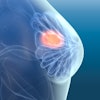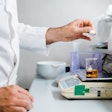A new solar energy technology that turns water into steam without boiling the entire container of water has become the basis for new sterilization devices that could be used on medical and dental instruments without electricity, according to a keynote address on September 8 at a meeting of the American Chemical Society (ACS).
Two solar steam prototypes of the devices, which need no electricity or fuel, were developed at by researchers at Rice University, according to an ACS press release. One prototype is the autoclave for sterilizing medical and dental instruments, while the other is an autoclave for disinfecting human and animal waste.
The devices are not large, can kill disease-causing microbes effectively and relatively quickly, and are easy to operate, which makes them ideal for use in undeveloped countries or regions that do not have reliable sources of electricity, according to the developers.
Tests have shown that the prototype autoclaves produced steam at temperatures ranging from 239° to 270° F, the researchers noted. Steam production adequate for sterilization began within about five minutes and continued long enough to sterilize liquid and solid materials placed inside the device, consistent with U.S. Food and Drug Administration sterilization guidelines. The heat and pressure produced by the steam was great enough to kill the most heat-resistant living microbes and also viruses and the tough spores that microbes form to survive hostile environments.
The researchers have formed a company that is working to move the devices from the prototype stage to commercial products. They also are trying to make them more rugged and at reasonable costs.



















